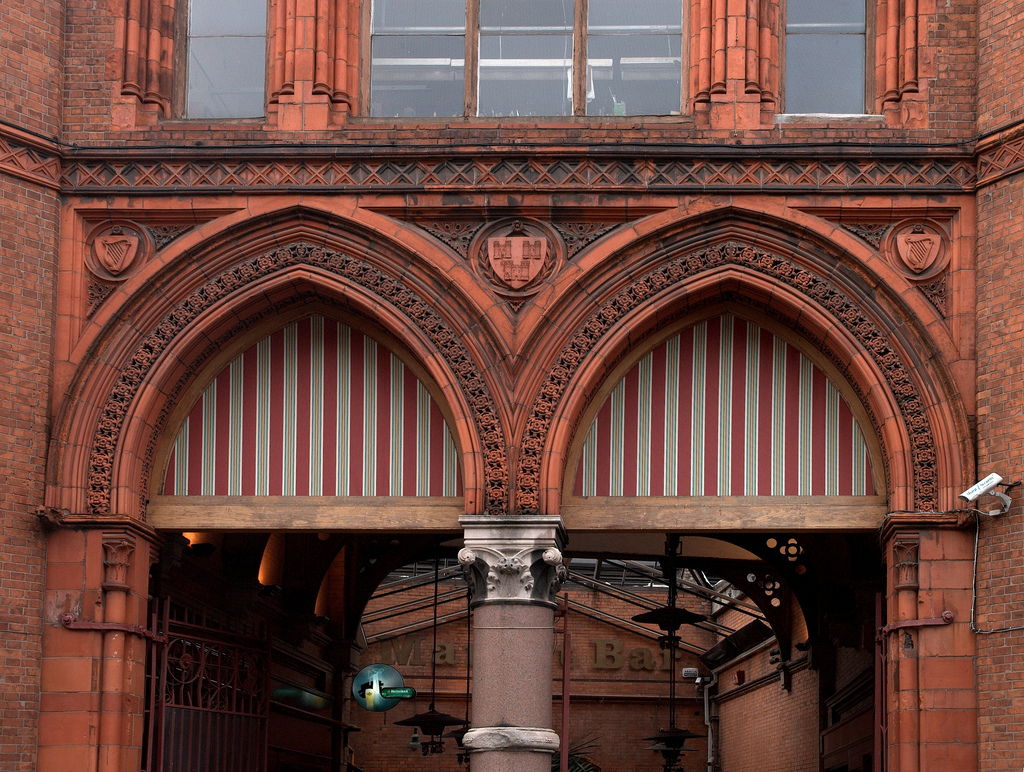Justin O’Hagan takes a look at the Northern Ireland economy over the last two decades and finds a reality far removed from the entrepreneurial fairyland the Stormont parties had hoped to conjure up.
During his first visit to Northern Ireland in 1995, US President Bill Clinton claimed to a gathering in the East Belfast Enterprise Park that he could discern the first signs of the economic benefits flowing from political progress. He went on to express his hope that the “entrepreneurs” of Northern Ireland would come to provide “a model for a lot of other countries as well who are struggling to build a system of free enterprise.”
Since the mid-nineties, the linking of the promise of peace with that of “free enterprise” and prosperity became a familiar refrain among many proponents of the “peace process”.
In the intervening years, a fragile political arrangement has failed to bring sustained and equitably distributed wealth to Northern Ireland.
Sociologist Colin Coulter notes: “When the main republican and loyalist paramilitaries decided to lay down their arms back in 1994, Northern Ireland was a society deeply scarred by poverty and inequality. The passage of two decades… has, alas, done rather little to alter that particular, miserable reality”. Initially, the economy improved.
Following the ceasefires, there was indeed an initial influx of multinational capital into Northern Ireland, especially from the United States. Between 1994 and 2000, almost $1.5 billion was invested in Northern Ireland by American multi-nationals alone.
It has been estimated that after the Good Friday Agreement in 1998, Foreign Direct Investment (FDI) from the US came to account for 10% of the jobs in Northern Ireland. This period saw a growth in jobs, particularly in service sectors such as retail. But this inward investment did not last and, as happened in the south, when FDI declined it was hoped that a debt-financed property boom might fuel continued economic growth. Stormont politicians on all sides presented no alternative plan.
In an effort to secure continued FDI into the North, on 1st April 2001 the Invest NI quango was set up with the stated aim of delivering “expertise and resources to accelerate the creation and growth of businesses committed to, and capable of, being entrepreneurial, innovative and international”. In the twelve years since its inception InvestNI has not been able to live up to its promise.
Neil McCracken, an investigative journalist with theDetail.tv has found that there was spending of almost £1bn (£932m) by Invest NI from 2002-07 and that “when jobs lost were taken into account … Invest had only created 328 net jobs over a five-year period, equating to an average of only 65 jobs per year.”
Moreover, according to the Community Relations Council’s Peace Monitoring Report, around 60% of the jobs that Invest NI has brought to the region are in call centres and two-thirds of these offer wages less than the median for the private sector in general.
Coulter said: “The attraction of this particular form of multinational investment to Northern Ireland both reflects and compounds its status as a low -wage economy”.
If a nationalised public utility spent the money that InvestNI has spent and produced so few jobs, no doubt the press would have a field day mocking the “dinosaur public sector” but criticism of InvestNI has been muted. Indeed, business magazine agendaNI noted in September that while the Northern Ireland Department of Enterprise, Trade and Investment has recently audited other “arm’s length” bodies (quangos) such as the Consumer Council and Health and Safety Executive, “Invest NI has the largest resource budget (£129 million this year) but has not been reviewed as its work is strategically important for the economy.”
The inadequacy of the FDI policy was clear in September, when Northern Ireland’s biggest remaining industrial company, Canadian multinational Bombardier, announced that it intended to cut almost 400 jobs from its aerospace operations.
The consultancy firm Pricewater-houseCoopers has been forced to admit that “some of the [economic] achievement of the 1990s and 2000s may have been built on insubstantial foundations”. There is every possibility that continuing to rely on foreign multi-nationals to invest in the local economy will produce no results or, at most, flash-in-the-pan growth in times of upturn in the global economy.
In the absence of a FDI-induced upturn, Stormont politicians and their obliging media place a lot of faith in benefits to the tourist economy of “big” events such as Presidential visits, golf tournaments and MTV shows. But not even they can seriously believe that this kind of thing is enough. So, (re-)enter the new plan B: Lower corporation tax, a neoliberal wheeze supported across the board by all parties in the Stormont Coalition. While Sinn Féin’s stated opposition to welfare reform is a welcome sign, there is no suggestion that the party has cast itself adrift from the broader neoliberal agenda. Coulter notes that “the increasingly marked neoliberal turn within Sinn Féin” is most readily apparent in the context of corporation tax:
“The republican movement has traditionally cast itself as socialist, with the manifestoes of its political wing typically emphasising the causes of equality and public provision. Since entering power, however, Sinn Féin has largely dispensed with radical rhetoric, on social and economic matters at least, and has come to embrace some key elements of the neoliberal agenda”.
It is rumoured that the British Government may seek to introduce a 12.5% headline rate for corporation tax in Northern Ireland, bringing it into line with the Republic. However, the corporation tax wheeze is very unlikely to bring general prosperity to Northern Ireland, and will only benefit, as in the Republic, a tiny layer of tax lawyers and financial consultants.
The various attempts to develop Northern Ireland as a prospering neoliberal economy have thus far failed. But, even if they were to succeed, only a minority of the population in the North would reap the benefits. Under the guise of austerity, the lives of working people in Northern Ireland are, as usual, under attack. Sustained economic crises of the sort we have recently suffered usually result in changes to the make-up of the working population and this crisis has proved no different. The unemployed, the disabled, women, those in Belfast and in the west of Northern Ireland are more likely to be poor and thus can expect to be hit particularly hard by the welfare cuts which are due to be imposed in the course of 2015.
Household incomes, poverty rates and the labour market have all worsened in Northern Ireland since 2009, according to the most recent research from the well-respected Joseph Rowntree Foundation. Almost 400,000 people now live in poverty in Northern Ireland, and the number of working people in poverty is also rising.
In each case, this deterioration has been greater than in Great Britain. Research by Paul McFlynn of the NERI Institute has found that employed workers in the North are now more likely to be female, older, more likely to work part-time, and more likely to work in service sectors than they were in 2008. Job creation, such as it is, is mostly low-paid and coming from the accommodation and food services and administration sectors. A local charity noted in September 2014 that unemployment and reduced working hours are the “primary drivers” of a household debt problem in Northern Ireland that is serious and growing.
While for many in Northern Ireland wages have stagnated or even declined, the earnings of those at the top of the occupational hierarchy have increased steadily. Coulter notes that “almost half of the income increases that have happened over the last decade have fallen to the most affluent fifth of Northern Irish society”.
The most recent statistics show that the wealthiest fifth of households in Northern Ireland enjoy incomes 4.9 times greater than the poorest fifth and, as elsewhere in the capitalist world, Northern Ireland now boasts a small number of extraordinarily (obscenely) wealthy individuals. In 2012, The Guardian reported that Belfast has, in per capita terms, more people with net assets of more than US $30m than any UK city apart from Aberdeen and London. Coulter estimates that in 2011, Belfast was home to no fewer than 96 of these ‘High Net Worth Individuals’:
“In fact, there would appear to be literally dozens of individuals settled in… exclusive parts of the city whose distance from the lives of those who clean their homes, tend their gardens, mind their children is sufficiently great that it has to be measured in tens of millions in various hard currencies”.
Coulter believes that: “There are some grounds… for hoping that the terms of political debate might finally begin to shift in Northern Ireland. The prospect of ever more painful austerity measures implemented by unionists and republicans alike might finally open up the space for another form of politics with a different set of priorities.”





